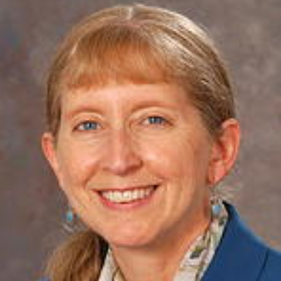Do workplace support programs help address frontline physician burnout?

August 22, 2024
A long-term trend of burnout among health- care providers accelerated during the COVID-19 pandemic. In response, workplace support programs emerged to maintain desperately needed frontline health care workers. But did such initiatives help reduce burnout?
A new study from the UC Davis Center for Healthcare Policy and Research (CHPR) addressed this question by exploring workplace support programs during the pandemic and their relationship to physician burnout. The study was led by Joy Melnikow, professor emeritus in the UC Davis School of Medicine, and published in BMC Health Services Research.
The COVID-19 Impacts Project
The study is the latest in a series of papers stemming from the COVID-19 Impacts Project. The project investigates how physicians likely to treat patients with COVID-19 have experienced the effects of the pandemic over time.
Following focus groups and interviews in the early months of the pandemic, researchers surveyed physicians in four time periods between 2020 and 2022. The surveys were sent to frontline physicians in primary care, critical care, emergency medicine, hospitalists and infectious diseases.
“Preventing burnout among frontline physicians is going to require hospitals and health systems to rethink how they compensate and structure the teams caring for patients.” —Joy Melnikow, professor emeritus, UC Davis Department of Family and Community Medicine
Studying workplace support programs
The study found that health systems, hospitals and physician practices implemented various measures to reduce physician stress and burnout during the pandemic. Some measures included:
- Enhanced personal protective equipment and testing
- Increased staffing and flexibility
- Expanded use of telehealth
- Improved communication
- Increased support on an individual-level like counseling, wellness resources, childcare and food
The analysis also showed that only expanded telehealth and being in practice for more than 10 years were associated with lower odds of burnout.
Issues contributing to physician burnout
Physicians surveyed for the study noted the difficulties of staffing shortages in the context of caring for more and sicker patients. Many respondents felt that insufficient administrative support compounded these issues. They prioritized additional staffing and increased compensation as the most important to reduce burnout.
“Physicians suggested that the most effective solutions focused on improved financial compensation and the added staffing of both physicians and nonphysicians, such as nurses,” Melnikow said. “Physicians felt stressed and demoralized from cumulative exhaustion and inadequate staffing. Anger from patients due to polarization around the pandemic and vaccinations also played a role.”
Melnikow thinks that addressing the physician burnout crisis will require systemic changes to staffing and team dynamics, along with improved compensation. She said individual stress reduction initiatives, like yoga or meditation programs, are insufficient.
“Preventing burnout among frontline physicians is going to require hospitals and health systems to rethink how they compensate and structure the teams caring for patients,” Melnikow said. “It’s difficult to implement system-level changes, but we think it is important to test these types of interventions to reduce physician burnout. Our findings also suggest that particular attention should be paid to physicians who are early in their careers.”
The COVID-19 Impacts Project has published several papers. One study was on physician burnout and another on physician communication strategies to address vaccine-hesitant patients. Recently, a paper on telehealth utilization was also published.
Melnikow’s co-authors on the new study include CHPR researchers Guibo Xing and Marykate Miller; Sabrina Loureiro and Andrew Padovani who were at CHPR at the time of the study; Richard Kravitz, a distinguished professor at UC Davis School of Medicine; and Robin Whitney, assistant professor at San Jose State University’s Valley Foundation School of Nursing.
Study: Workplace support for physicians during the COVID-19 Pandemic: Did it affect burnout?
The Center for Healthcare Policy and Research’s mission is to facilitate research, promote education, and inform policy about health and health care. The goal is to improve the health of the public by contributing new knowledge about access, delivery, cost, quality and outcomes related to health care and providing rigorous evidence to policymakers and other stakeholders. CHPR executes its mission through interdisciplinary and collaborative research; education and career development; and research synthesis and dissemination.

